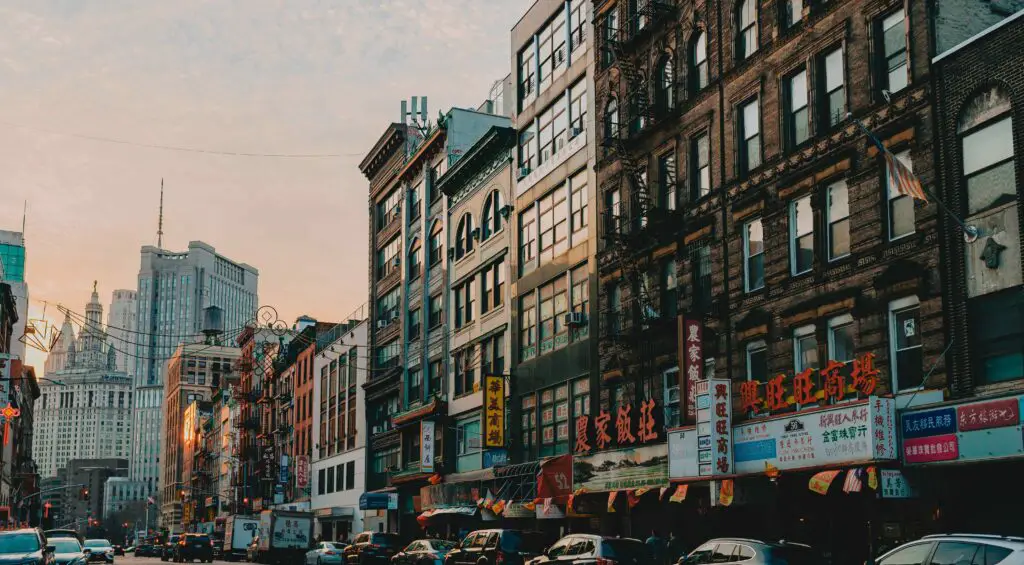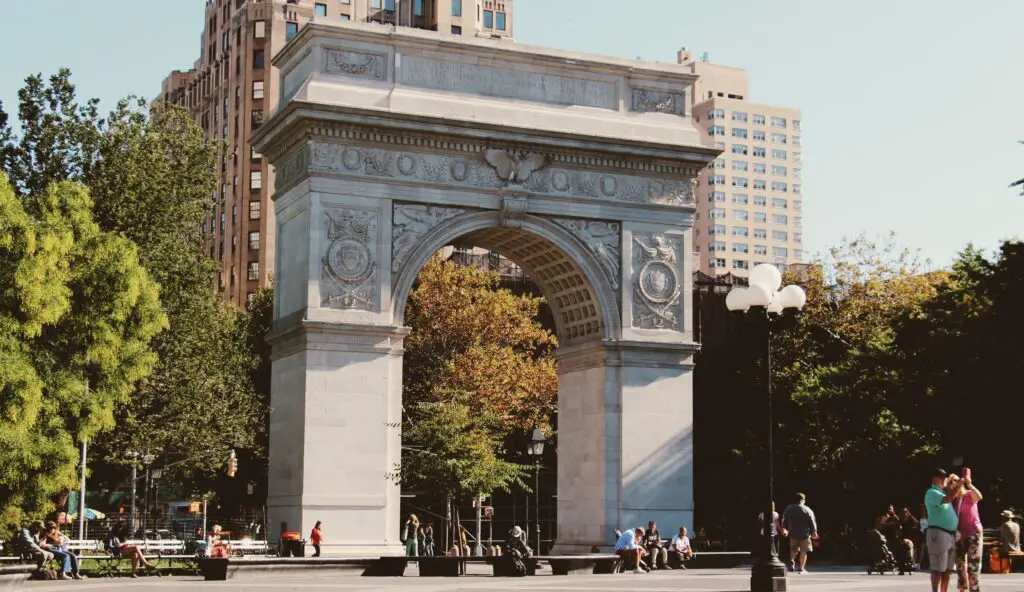
Nestled in the heart of America’s Midwest, Iowa offers a refreshing escape that defies typical travel expectations. Often overlooked on the map, this charming state is brimming with friendly small towns, lush farmlands, scenic byways, and hidden cultural treasures that together create a genuine experience rarely found in mainstream guides.
In this article, we introduce you to a series of Iowa Travel Hacks designed to help you unlock the secrets of the Hawkeye State and truly make the most of your adventure. Whether you’re embarking on a solo road trip, planning a family getaway, or simply seeking inspiration for your next vacation, our guide provides practical tips on transportation, lodging, budgeting, timing, and the little‐known nooks and crannies that only locals can point out.
In a region celebrated as the Midwest USA, Iowa stands out not only for its natural beauty but also for its warm, genuine hospitality. Every mile traveled reveals an opportunity to experience authentic local traditions and embrace moments of serendipity. With thoughtful recommendations—from budget‐friendly lodging and world‑class outdoor adventures to tips on uncovering hidden local treasures—this guide is more than just an itinerary; it’s a toolkit of insights ready to empower your journey. For those eager to design the perfect getaway, consider the advice of a personal travel planner and explore tried‑and‑true travel tips. Prepare to immerse yourself in a diverse tapestry of history, culture, and nature that encapsulates the true spirit of Iowa.
Table of Contents
ToggleUnderstanding Iowa Travel Hacks and What Makes Iowa Special
Iowa is a state of contrasts and surprises. Its vast prairies blend seamlessly with pockets of bustling urban art scenes and historical landmarks. The term Iowa Travel Hacks encapsulates smart yet unconventional tips that help travelers explore this Midwestern gem beyond the conventional tourist routes.
Whether it’s saving money on accommodations by opting for unique farm stays or discovering independent local eateries that serve hearty Midwestern cuisine, these hacks empower you to experience the authentic spirit of the state.
Exploring Iowa’s Scenic Landscapes

Iowa’s natural beauty is characterized by its rolling hills, meandering rivers, and expansive farmlands. Numerous scenic byways and state parks offer peaceful retreats away from crowded urban centers.
Imagine cruising along winding country roads where golden sunsets illuminate sprawling fields, or spending a quiet afternoon discovering hidden lakes and nature trails. These picturesque scenes provide the perfect background for reflection and are a testament to the untouched charm that defines the region.
Budget-Friendly Travel Tips
Traveling on a budget doesn’t mean compromising on the quality of your experience. Embracing effective How to Save strategies lets you allocate more resources to experiences that truly matter.
Many small towns in Iowa boast affordable lodging options paired with the warmth of community hospitality. Opting for local diners not only saves money but also offers a taste of authentic Midwestern cuisine served with a generous side of local stories. Off‑season travel further opens the door to lower prices and fewer crowds, letting you explore the state’s treasures at a relaxed pace.
Planning Your Iowa Adventure
Every great journey starts with careful planning. Begin by setting a flexible itinerary that allows room for spontaneous discoveries. Consider using a personal travel planner to design an itinerary that captures the essence of every destination you visit.
Complement your blueprint with reliable travel tips that can help you navigate local transit or uncover a hidden gem off the beaten path. For those whose wanderlust extends beyond Iowa, you might even think about taking a detour—a well‑organized South Dakota Road Trip can be the perfect complement to your Midwestern journey, or you can gain inspiration by experimenting with a detailed North Dakota Itinerary that explores other nearby treasures.
How to Get Around Iowa
While Iowa’s compact size makes it an easy state to traverse, planning your mode of transportation carefully is key. Renting a car is often the best way to engage with the scenic countryside, giving you the freedom to stop wherever inspiration strikes.
For those curious about more urban models of travel, insights into Intermodal Transportation in Chicago can offer ideas on how to combine modes of transit to suit varied travel needs. Whether you’re embracing the open road or opting for regional transit systems, having a reliable navigation tool and a flexible plan will ensure you never miss an unexpected delight.
Where to Stay in Iowa
Accommodation in Iowa ranges from the quaint and historic to modern comforts. Many travelers find that staying at locally owned inns not only provides a cozy atmosphere but also enriches the experience with insider tips from hosts well-versed in regional secrets.
If you prefer a closer connection with nature, Iowa’s numerous camping grounds and RV parks offer a chance to sleep under the stars while waking up to breathtaking sunrises. Each lodging choice contributes uniquely to your adventure, ensuring that every night is as memorable as the day’s discoveries.
Navigating Iowa’s Weather and Seasons

Iowa’s weather varies widely with the seasons, making timing an essential part of planning your trip. Spring and fall offer mild temperatures perfect for enjoying colorful landscapes and outdoor festivals, while summer tempts with long daylight hours for extended exploration.
Winter, with its serene, snow‑dusted vistas, invites quiet reflection and cozy indoor moments. No matter when you visit, be sure to pack accordingly and check local forecasts so that your planned activities comfortably align with the day’s weather.
Cultural and Historical Highlights of Iowa
Beyond its scenic beauty, Iowa is steeped in a rich cultural and historical narrative. Museums, art galleries, and community events pay homage to a legacy that bridges the pioneering past with contemporary innovation.
Museums, Art, and Local Heritage
Iowa is home to museums that bring its agricultural roots and pioneer history to life. Interactive exhibits and curated collections provide insights into traditional crafts, local folklore, and the transformative impact of rural innovation. Art galleries throughout the state showcase expressive regional artworks and often host hands‑on workshops that let you experience local artistic traditions firsthand.
Local Events and Festivals
Community events and vibrant festivals are woven deeply into the fabric of Iowa’s culture. County fairs, seasonal harvest celebrations, and regional art shows allow you to mingle with locals and enjoy authentic entertainment that embodies Midwestern cheerfulness. These events not only provide unforgettable memories but also reveal insider secrets and spontaneous travel hacks shared by residents to enhance your journey.
Outdoor Adventures and Natural Wonders

Iowa is an invitation to explore the great outdoors, whether you’re an avid hiker, cyclist, or simply someone who appreciates the natural world. Its parks and recreational areas offer ample opportunities to disconnect from daily routines and immerse yourself in the untouched beauty of the state.
State Parks and Recreational Areas
The well‑kept state parks of Iowa act as sanctuaries of natural beauty, offering extensive hiking trails, serene lakes, and picnic spots ideal for a day away from bustling urban life. Many parks feature visitor centers with detailed historical context, enhancing your visit with informative exhibits and guided tours. These spaces allow travelers to immerse themselves fully in the peaceful spirit of Iowa’s countryside.
Hiking, Cycling, and Water Activities
For outdoor enthusiasts, Iowa offers a host of activities that beckon with adventure. Well‑marked hiking trails weave through scenic vistas, each turn offering new perspectives on the state’s unique terrain. Cyclists can take advantage of dedicated bike paths that often run parallel to major roads, ensuring safe and enjoyable rides.
Meanwhile, the pristine lakes and meandering rivers invite water-based activities such as canoeing, kayaking, and fishing—each experience providing a chance to synchronize your rhythm with nature’s pace.
Iowa Travel Hacks for Foodies

One of the true joys of any adventure is the chance to indulge in local culinary delights. In Iowa, the food scene is a dynamic blend of hearty Midwestern classics and innovative farm‑to‑table dishes that highlight the region’s agricultural bounty.
Local Dining Experiences
Dining in Iowa is a rich cultural exchange. From bustling local diners to hidden restaurants off the beaten path, every meal is an opportunity to immerse yourself in the local lifestyle. If you’re wondering where to find your next bite, simply use Nearest Restaurant to You to pinpoint the best local eateries near your location. Locals often enthusiastically share their favorite spots, ensuring that every meal becomes a part of your memorable journey.
Farm-to-Table Restaurants and Unique Eats
Iowa’s connection with its rural roots is beautifully reflected in its farm‑to‑table dining experiences. Many restaurants source fresh ingredients directly from nearby farms, resulting in vibrant dishes that tell the story of the region’s agricultural heritage. As you savor each bite, consider planning a small detour to sample flavors outside of Iowa—perhaps even exploring Wisconsin’s Must-Try Dishes if your travels lead you further into the Midwest, enriching your culinary adventure even more.
Practical Tips for Maximizing Your Iowa Journey
Smart travel is all about thorough planning and a dash of spontaneity. Implementing a few practical strategies can transform your Iowa trip into an experience that’s as enriching as it is economical.
Timing Your Trip and Avoiding Peak Periods
One of the most effective Iowa Travel Hacks is scheduling your visit during the shoulder seasons—spring or fall—when the weather is mild, attractions are less crowded, and prices tend to be lower. This timing not only saves money but also gives you more space to interact with locals and absorb the region’s natural beauty without the interference of tourist overload.
Managing Budget and Transportation
Keeping a close eye on your budget maximizes your freedom to explore. Factor in costs for fuel, meals, and accommodations, and embrace available deals by checking out platforms like How to Save for clever money‑saving advice. When it comes to transportation, renting a car can be the most versatile option. However, if you prefer alternative methods, research regional transit services and ride‑sharing opportunities that can further stretch your budget while providing a comfortable travel experience.
Staying Safe on the Road
Travel safety should never be an afterthought. Iowa’s highways are generally well‑maintained, yet it’s wise to stay updated on weather conditions and road advisories, especially during seasonal transitions. If you’re venturing out on your own, particularly as a solo female traveler, consult trusted guides on Solo Female Travel and review essential Safety Tips for Women to ensure your journey is secure and stress‑free. Additionally, before you depart, consider protecting yourself with travel insurance from SafetyWing so that you can travel confidently knowing you’re covered.
Personal Stories and Must-Try Experiences
Every trip has its own unique set of memorable moments—finding a hidden diner or stumbling upon a secret fishing spot can become the highlight of your adventure. Seasoned travelers proudly share anecdotes that stress the importance of spontaneity and the joy of unexpected discoveries.
Locals are invariably generous with recommendations, sharing insider tips that transform an ordinary road trip into a tapestry of cherished memories. Embracing every twist and turn—from scenic byways to community festivals—deepens your connection to Iowa and the broader Midwestern spirit. Each discovery, shared as a personal story, enriches your itinerary with layers of culture, history, and natural splendor that stay with you long after you’ve returned home.
Conclusion
In wrapping up your journey through these travel hacks, it becomes apparent that Iowa isn’t just another stopover on your map—it’s a full‑fledged adventure that rewards curiosity, careful planning, and a willingness to embrace the unexpected. The practical advice packed into these Iowa Travel Hacks transforms a simple road trip into an immersive exploration of culture, nature, and community spirit. From budget‑friendly accommodations and hidden dining gems to safety tips tailored for solo travelers, every element is designed to ensure that your Midwestern adventure is as enriching as it is unforgettable.
As you prepare to chart your path through Iowa, let these insights inspire you to explore beyond the usual beaten track. Every mile traveled is an opportunity to write a new chapter in your adventure—a chapter filled with warm interactions, scenic vistas, and the unexpected delights that often lie just around the bend. In a fast‑paced world, Iowa offers a refreshing pause—a place where genuine connections are forged and every experience fosters personal discovery. Embrace the journey, and may your next adventure be as memorable and transformative as the stories waiting to be discovered on these open roads.



